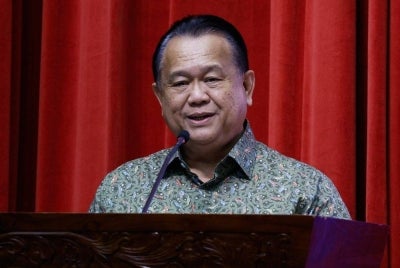MACC exposes misappropriation of subsidies, 'keeping' rice in factories

PUTRAJAYA - The Malaysian Anti-Corruption Commission (MACC) is now focusing on investigations relating to the misappropriation of subsidies provided to farmers who sell local rice to licensed factories.
According to a source, three factories were raided by the MACC around Kedah on Wednesday following the investigations.
"The syndicate was suspected of using forged receipts for the purchase of rice in the factories involved as their modus operandi.
"It involves three parties, namely farmers, manufacturers and representatives of Padiberas Nasional Berhad (Bernas) who are responsible for ensuring that the amount of rice purchased from farmers is balanced with the amount of subsidy paid," the source said.
The source said irregularities in subsidy claims were suspected to occur when the total weight of rice sold at the factory was not the same as the subsidy value paid to farmers.
"The receipts for the purchase of rice and the total weight of rice are suspected to have been deliberately forged by multiplying the total weight of rice sold," he said.
It is understood that the subsidy paid by the government through Bernas was as much as RM500 for each tonne of rice sold at the factory while the factory bought from farmers at a price of RM1.25 per kilogramme.
"This means that if a farmer sells a tonne of rice to a manufacturer, they will receive RM1,250 and RM500 of that amount is a subsidy from the government," he said.
The source added that the amount of subsidy allocated by the government was as much as RM600 million per year, but it was still too early to formulate the actual amount of subsidy leakage that occurred.
The source also revealed that there were irregularities committed by manufacturers who mixed local rice with imported rice and sold it at the price of imported rice.
"It is much more profitable than the local rice price which is controlled by the government," he said.
The source said that one of the other factors causing the lack of local rice was the attitude of manufacturers who stored and hid local rice supposedly waiting for price adjustments by the government.
"They gave the reason that the rice was kept because there were no agents who wanted to buy the rice," he said.
Meanwhile, MACC Chief Commissioner Tan Sri Azam Baki when contacted confirmed the action taken by MACC regarding the matter.
He said the case was being investigated under Section 18 of the MACC Act 2009.
"MACC will look at two aspects including criminal offences and aspects of governance in the distribution of subsidies," he said.
Download Sinar Daily application.Click Here!














